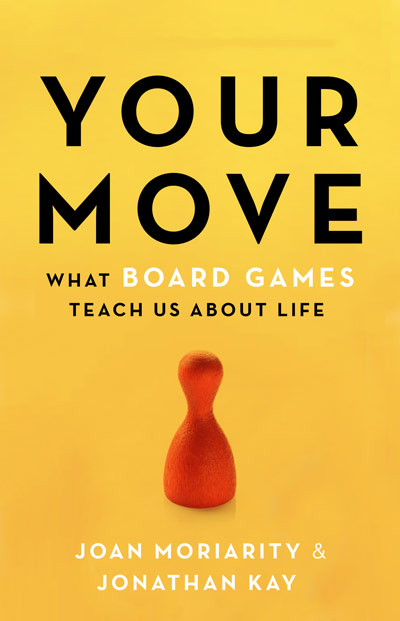- 40% Off: New Digital Subscriptions at PocketMags.com. Reg $14.99. Now $8.99
- Science Salon # 96: Michael Shermer with Catherine Wilson — How to Be an Epicurean: The Ancient Art of Living Well
- Monopoly & Monopolies: What Board Games Teach Us About Capitalism and How to Modify It
- We Need Your Support: Give a Tax-deductible Donation by Dec. 31
MONDO SAVINGS ON SKEPTIC MAGAZINE!
Save 40% on New Digital Subscriptions
4 DIGITAL ISSUES
Reg. $14.99
NOW ONLY $8.99
Starting this Friday, December 27, 2019, and running for two weeks only, enjoy 40% off new digital subscriptions to Skeptic magazine at PocketMags.com. Subscribe on Friday and download the current issue instantly. Three more digital issues will follow as they are released (in March 2020, June 2020, and September 2020).
Your subscription can be synchronized to your favourite handheld device(s), or read on your Mac or PC.
This offer is valid from December 27, 2019 through January 10, 2020. To get the 40% discount, a new digital subscriptions must be purchased at PocketMags.com. Questions about digital subscriptions? Email PocketMags Support at [email protected].
SCIENCE SALON # 96
Michael Shermer with Catherine Wilson — How to Be an Epicurean: The Ancient Art of Living Well
In this wide-ranging conversation the philosopher Catherine Wilson makes the case that if the pursuit of happiness is the question, Epicureanism is the answer. Not the mythic Epicureanism that calls to mind gluttons with gout or an admonition to eat, drink, and be merry. Instead, in her new book How to Be an Epicurean, Wilson shows that Epicureanism isn’t an excuse for having a good time: it’s a means to live a good life. Although modern conveniences and scientific progress have significantly improved our quality of life, many of the problems faced by ancient Greeks — love, money, family, politics — remain with us in new forms. To overcome these obstacles, the Epicureans adopted a philosophy that promoted reason, respect for the natural world, and reverence for our fellow humans. By applying this ancient wisdom to a range of modern problems, from self-care routines and romantic entanglements to issues of public policy and social justice, Wilson shows us how we can all fill our lives with purpose and pleasure. Wilson and Shermer also discuss:
- the hedonic treadmill and the problem of pursuing material goods
- why money will not bring you happiness or meaning
- eternal moral truths
- judging figures from the past by modern moral standards
- why she thinks everyone from Thomas Jefferson to Joe Biden should have known better and acted differently
- why she thinks Jeffrey Epstein committing suicide was a rational choice for him
- how to think about the abortion issue
- why we need not fear death, and
- how to lead a meaningful life.
Catherine Wilson received her PhD in philosophy from Princeton University and has taught at universities in the US, Canada, and Europe. She has published more than 100 research papers and eight books, including A Very Short Introduction to Epicureanism and Metaethics from a First-Person Standpoint: An Introduction to Moral Philosophy. She has two children and lives in New York City, where she is currently Visiting Presidential Professor of Philosophy at the Graduate Center at CUNY.
Listen to the podcast via Apple Podcasts, Spotify, Google Podcasts, Stitcher, iHeartRadio, and TuneIn.
Check Us Out On YouTube.
Science Salon • Skeptic Presents • All Videos
You play a vital part in our commitment to promote science and reason. If you enjoy the Science Salon Podcast, please show your support by making a donation.

The following essay was adapted with permission from Your Move: What Board Games Teach Us About Life, by Joan Moriarity and Jonathan Kay, published in 2019 by Sutherland House.
Monopoly & Monopolies
What Board Games Teach Us About Capitalism and How to Modify It
Imagine that you are in the late stages of a game of Monopoly, battling it out against a lone remaining opponent. You each control a bunch of expensive properties, all loaded with hotels. Both of you also are cash-poor, with no spare properties left to mortgage. Every roll of the dice carries high stakes. If your opponent lands on one of your hotels, the only way he can pay the rent will be to sell off his own hotels at a 50-percent discount (because that is how the rules of Monopoly work), and vice versa. Which means that the first player who lands on an opponent’s hotel will not just lose a lot of money: He will also lose the assets he needs to earn that money back. In real life, the analogy would be the poor worker in Victorian Britain who, unable to pay a small debt, goes to debtor’s prison, which further compromises his ability to earn a livelihood, and so pushes his family deeper into complete destitution.
“Well, that’s capitalism,” you might say. Perhaps. We will get to that later. For now, I want to emphasize that this aspect of Monopoly — the poor get poorer, while the rich get richer — is not only typical of laissez-faire economics. It is also characteristic of a certain dynamic observed in nature, engineering and human relationships, one that mathematicians sometimes describe as unstable equilibrium.
Take a simple physical metaphor: a marble resting at the bottom of a salad bowl is going to exhibit a stable equilibrium — because small movements in any direction will push the marble up against the walls of the bowl, and the marble will roll back toward its start position, also known as its equilibrium point.
If the salad bowl is turned upside down, however, and the marble is placed at the top of it, the marble will exhibit an unstable equilibrium: Even if the marble is balanced perfectly on top of the bowl, and so remains temporarily motionless, a nudge in any direction will lead to a feedback loop whereby the marble rolls off the bowl, moving slowly at first and then accelerating downward. In general, a stable equilibrium tends to correct itself, restoring the balance of offsetting forces that held it in check to begin with; while an unstable equilibrium tends to destabilize in one direction or another, until the system in some way collapses or reaches a different stable equilibrium.
Now let us return to Monopoly. You and your imaginary opponent are moving your tokens around the board, seeking to avoid one another’s hotels. In a way, you each inhabit an economic state analogous to the marble sitting on top of that salad bowl. All you need is a single initial nudge toward poverty and a cascade will begin, pushing you further and further down. […]
WE NEED YOUR SUPPORT
Give a tax-deductible donation by Dec. 31
2019 was another banner year for the Skeptics Society, as we revamped our efforts in promoting science, skepticism, and critical thinking as we move into our second quarter century of activism in the name of science. Thanks to your continued support, we are looking forward to 2020 and are pleased to report on what we have been doing with your donations the past year…
[Message from Michael Shermer continues]
Read the full letter from Michael
Ways to make your tax deductible donations
You can make a donation online using your credit card, or by calling 1-626-794-3119. You may also mail us a cheque along with your completed printable donation form. The Skeptics Society is registered US 501(c)(3) nonprofit educational organization. Your donations are tax deductible.















